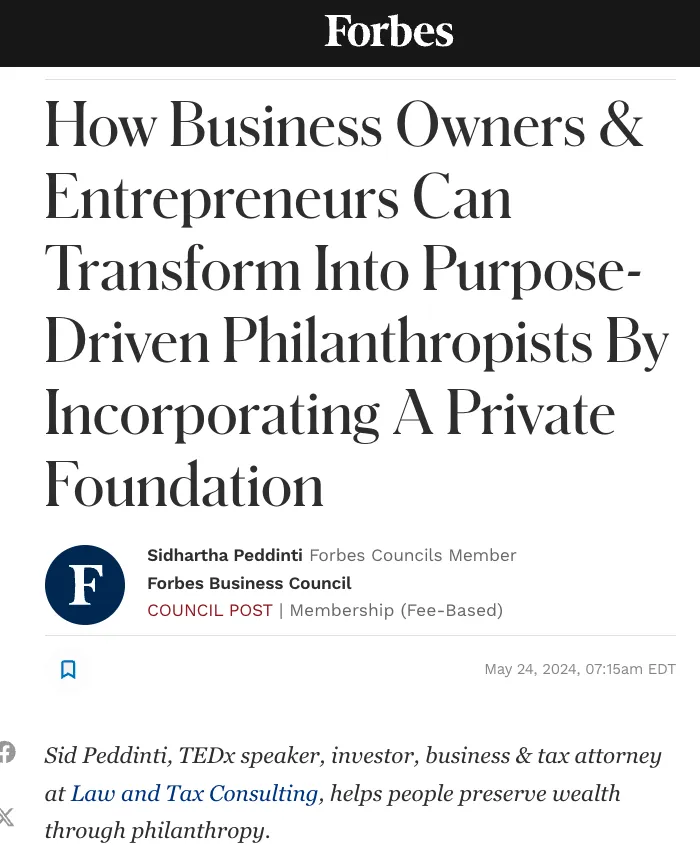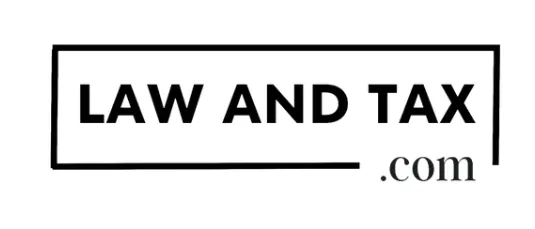How do foundations fit into the world of estate & tax planning?
Watch this video that walks through the different estate planning options and how private foundations fit into the picture
Here are six of the main compliance rules and regulations that a private foundation's board of director need to adhere to:
1. Governing Instrument: The foundation's board of directors must follow the governing documents and the foundation's stated mission. Not doing so can result in losing the tax-exempt status, penalties and even corporate tax rates on income generated through investments. Careful planning and drafting are required to ensure both short-term and long-term goals can be achieved.
2. Section 4940: Excise Tax Based On Investment Income: Private foundations pay a 1.39% excise tax annually on net investment income (interest, dividends, rents and royalties). Failure to pay the excise tax can result in additional taxes and penalties by the IRS. Furthermore, continued noncompliance can result in the revocation of the private foundation's tax-exempt status.
3. Section 4941: Taxes On Self-Dealing: This rule prohibits most transactions between foundation and disqualified persons like substantial contributors, managers and family members. There is an initial penalty of 10% tax on the self-dealer and 5% on the foundation manager(s). If not corrected, an additional 200% tax is imposed on the self-dealer and the foundation's managers can be removed from a board position.
4. Section 4942: Taxes On Undistributed Income: Foundations must distribute 5% of net investment assets (assets not directly used by the foundation for charitable use) for charitable purposes in the form of grants or donations, generally to qualified and operating charities. Failure to do so can result in a penalty of 30% tax on the undistributed amount each year it remains undistributed. In addition, continued noncompliance can lead to increased tax and loss of tax-exempt status.
5. Section 4943: Taxes On Excess Business Holdings: This rule limits combined holdings of foundation and disqualified persons to 20% of voting stock in an active business. A penalty of 10% tax on excess holdings is incurred at the initial penalty, and 200% if the actions are not corrected. Additionally, the foundation can lose its status for continued noncompliance.
6. Section 4945: Taxes On Taxable Expenditures: This section prohibits foundations from making taxable expenditures for noncharitable purposes like lobbying, political campaigning or grants to individuals, with penalties including a 20% tax levied on the taxable expenditure amount paid by the foundation as well as potential revocation of the foundation's tax-exempt status for flagrant violations.
Article on foundations featured on Forbes Council...
Here is an article written in Forbes Business Council by our Founder, Attorney Sid Peddinti, that dives into the history, logic, congressional debates, and the evolution of the private foundation. The article also dives into the compliance measures, which are summarize below for you convenience.
Here is the link to the article: Click here (opens in a new tab)

Everything you need to know about foundations
Private foundations - an overview
Wealth Control: Private foundations allow you to maintain control over charitable giving while preserving wealth for future generations.
Tax Advantages: Contributions are tax-deductible, providing savings on income, estate, and capital gains taxes.
Philanthropic Legacy: Establish a lasting legacy by supporting causes you care about during your lifetime and beyond.
Flexible Giving: Fund a variety of causes without being tied to a single charity and have complete control over investments and charitable giving.
Asset Protection: Foundation assets are generally shielded from creditors and legal claims against the donors.
Long-Term Impact: Operate in perpetuity, ensuring your charitable work continues indefinitely.
Regulatory Compliance: Foundations require adherence to specific legal and administrative responsibilities.
Income tax reduction with foundations
Income tax deductions for the rest of your life:
30% AGI Limit: Deduct up to 30% of your adjusted gross income annually for donations of cash.
Carry Forward: Excess deductions can be carried forward for up to five years to lower taxable income.
Invest Cash Donations: Cash contributions can be invested in assets to grow the foundation's funds.
Asset Donations: Receive an income tax deduction based on the cost or FMV of donated assets (rules differ).
Estate Tax Reduction: Donated assets are excluded from your taxable estate, lowering estate taxes.
Tax-Free Gains: Future gains on donated assets are tax-free within the foundation.
Capital gains tax reduction with foundations
Here’s a concise overview on capital gains tax reduction with private foundations:
Public Stock: When you donate public stock, you receive a full fair market value (FMV) deduction, avoiding capital gains tax on the appreciation.
Other Assets: For other types of assets, the deduction is based on the adjusted cost basis, still providing a tax benefit while avoiding capital gains taxes.
Estate Exclusion: Donated assets are removed from your taxable estate, reducing potential estate taxes.
Flexibility in Holding or Selling: The foundation can choose to hold or sell the donated assets, depending on its investment strategy.
Proceeds Tax Rate: Funds from the sale of assets are taxed at a favorable rate of 1.39%, significantly lower than personal capital gains taxes.
Reinvestment Freedom: Proceeds can be reinvested without the need for a 1031 exchange, offering greater flexibility in managing the foundation's portfolio.
Carryover Deduction: Any excess charitable deduction can be carried forward for up to five years, ensuring you maximize your tax benefits over time.
Estate and gift tax reduction with foundations
Benefits of Donating Assets to a Foundation:
Estate Exclusion: Donated assets are removed from your taxable estate, reducing estate tax liabilities.
No Gift Tax: Assets donated to a foundation are not subject to gift tax, allowing for tax-efficient wealth transfer.
Probate Exemption: Donated assets bypass the probate process, ensuring a smoother and faster transfer.
No Step-Up in Basis: Donated assets are not subject to a step-up in basis, which can result in tax advantages depending on the asset's appreciation.
Avoiding probate cost, lawyer cost, and inheritance tax
Bypass Probate: Assets in a foundation avoid the probate process, ensuring a quicker and more private transfer.
Bypass Legal Fees: Minimize legal costs by avoiding the lengthy probate process.
Bypass Inheritance Tax: Assets transferred to a foundation are generally not subject to inheritance tax, preserving more wealth.
Bypass Stress: Simplify the asset transfer process, reducing the emotional and administrative burden on your heirs.
No Surprises: With a well-structured foundation, your wishes are clearly defined, avoiding unexpected complications.
A multi-generational impact investment fund
Billionaire Strategy: Leverage the strategies used by the ultra-wealthy to preserve and grow your family's wealth for future generations.
Invest Donated Assets: Whether you donate cash or assets, they are invested within the foundation, allowing the capital to grow tax-free.
Tax-Free Investments: All gains on investments within the foundation are tax-free, maximizing the impact of your contributions.
Annual Giving: The foundation makes donations and grants annually, supporting causes that align with your family’s values.
Family Governance: Board members can be family members, allowing you to involve your loved ones in philanthropy and financial stewardship.
Reasonable Salary: Family members who manage the foundation can take a reasonable salary, providing compensation for their efforts.
Legacy of Values: Use the foundation to pass on important lessons in entrepreneurship, investing, and charitable giving to the next generation.
Rules and regulations
No Self-Dealing: Avoid transactions between the foundation and its insiders to ensure compliance with IRS regulations.
Prudent Investing: Ensure that all investments are made responsibly, without jeopardizing the foundation’s charitable mission.
Diversified Portfolio: Maintain a diversified investment portfolio to manage risk and promote sustainable growth.
Adherence to Rules: Strictly follow all legal and regulatory guidelines to maintain the foundation’s tax-exempt status.
5% Distribution Requirement: Meet the IRS mandate by distributing at least 5% of the foundation’s assets annually for charitable purposes.
Excise Taxes: Be aware of potential excise taxes on investment income and ensure timely payment to avoid penalties.
Legal and Tax Reporting: Maintain accurate records and fulfill all legal and tax reporting requirements to ensure ongoing compliance.
